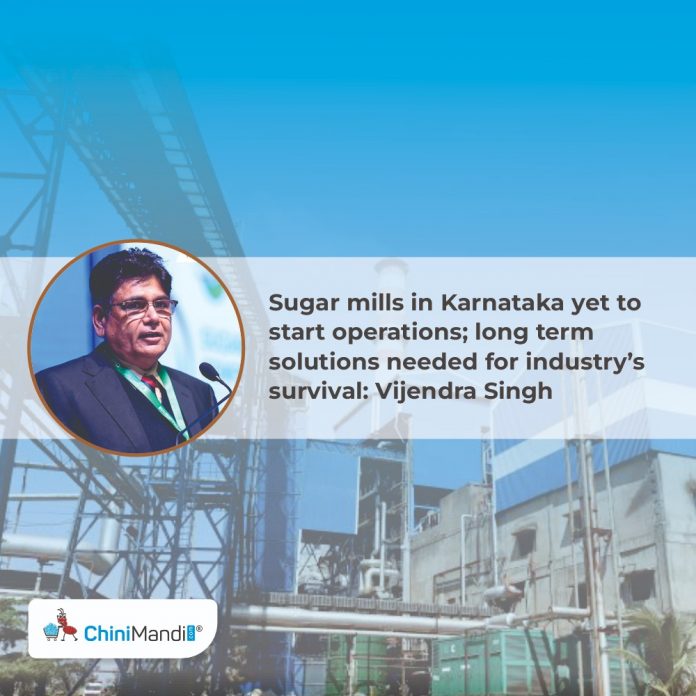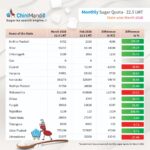The new sugar season of 2025-26 commenced on October 1st. However, sugar mills in Karnataka, the country’s third-largest sugar-producing state, are yet to start crushing operations.
Vijendra Singh, Executive Director and Dy. CEO of Shree Renuka Sugars, said that a long term and stable policy of linking sugarcane price with sugar and ethanol price is necessary to ensure growth and well-being of the industry and sugarcane farmers.
Q. Have sugar mills begun crushing operations in Karnataka?
Ans: No, mills have not started in Karnataka.
Q: Why is the delay in starting the crushing operations this year?
Ans: The primary factor is economic. We estimate that higher sugar production and reduced diversion of sugar to ethanol will result in the availability of sugar exceeding domestic consumption. Consequently, everyone is expecting a sharp reduction in sugar selling prices. This will reduce the paying capacity of mills to their farmers.
Additionally, the sugarcane price has risen significantly over the past three years, from Rs 305/Qtl in 2022-23 to Rs 355/Qtl in 2025-26—a total increase of Rs 50/Qtl (16.39%). But, ethanol prices and the minimum selling price (MSP) for sugar have remained unchanged at Rs 31/Kg, which has impacted the financial conditions of the sugar mills adversely.
Q: What is the demand of the sugarcane farmers in Karnataka?
Ans: Farmers are demanding a sugarcane price of 3,500 per MT, as their cultivation costs have risen. Sugar mills are struggling to pay even the current Fair and Remunerative Price (FRP), and there is concern that the mills won’t be able to make payments for sugarcane, causing dues to accumulate as in the past.
Q: What is the solution?
Ans: The solution is as follows:
As per the current FRP, the equivalent sugar MSP should be about Rs 41-42/Kg. To enable millers to provide farmers with sugarcane prices over the FRP as per their demands, the MSP of Sugar needs to be increased to the levels of Rs 44-45 per Kg immediately. Along with it, the price of Ethanol needs to be revised to Rs. 72 /litre for Cane Juice, Rs. 69/Litre for B Heavy and Rs 61.20/Litre for C Heavy.
The consumption of ethanol should be increased by increasing ethanol blending to 25-30% and facilitating Flex-fuel Vehicles to come into commercial production as soon as possible.
Although exporting sugar may not be economically viable at current price points, permitting exports could enhance market sentiment and use opportunities whenever available.
Q. Do you have any suggestions on a long-term solution so that industry & farmers can plan their lives better?
Ans: A long-term and stable solution would be to link sugarcane prices to the prices of sugar and ethanol. A policy should be in place so that whenever sugarcane prices are increased, prices of sugar and ethanol change proportionately.
This approach would help maintain the financial health of sugar mills and enable timely payments to farmers.
Q: What is the ground situation in Karnataka?.
Ans: While efforts are being made by all parties to address the issue, an effective solution requires policy changes that necessitate full alignment between state and central governments. Prompt decision-making on key policy matters will be essential to resolving the situation.
As I previously mentioned, in a highly regulated industry such as sugar, it is important to make policy decisions proactively in consultation with all stakeholders to avoid a crisis, which we are currently facing.















